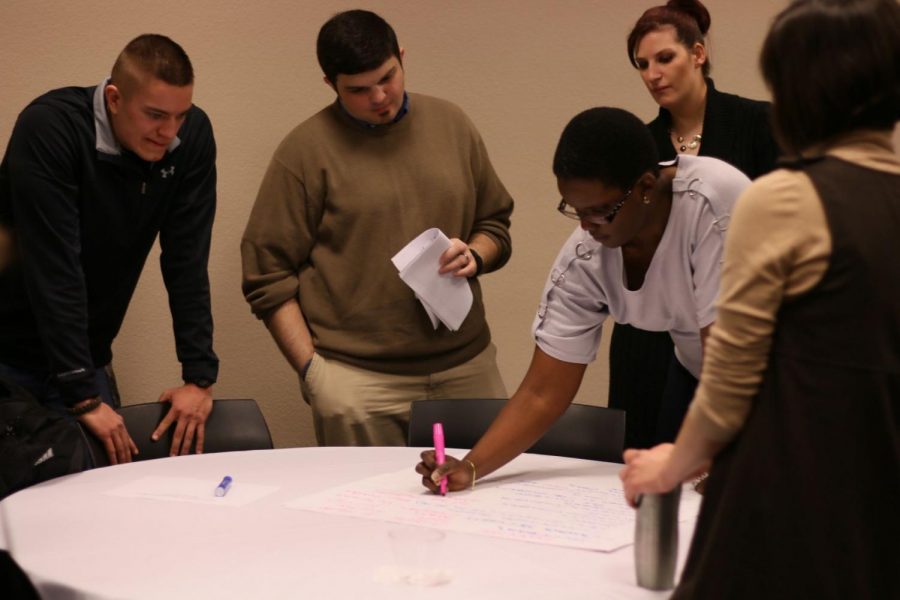Final ‘Courageous Conversations’ brainstorms inclusivity
February 3, 2016
Washburn University held a third “Courageous Conversations” meeting at 7:30 a.m. Feb. 2 in the Kansas Room to talk about diversity and equal opportunity on campus.
The Washburn Student Government Association and Diversity Initiative collaborated to set up meetings to provide students a place to come and share ideas about promoting and starting the conversation about equality.
“We want to create a safe and inclusive campus at Washburn University,” said Jessica Barraclough, director of Student Activities and Greek Life. “Some of our goals include engaging faculty and classes and using these opportunities to adapt what we do in classes to be better. We are trying to think about what questions we want to see in these conversations.”
There were two meetings that occurred before this one. The last one was at the end of the 2015 fall semester and was used as an opportunity to generate some questions.
“We are trying to think about the bigger picture,” Barraclough said. “How do we engage more conversations to make cultural changes on campus to be more inclusive?”
Multiple tables were set up around the room with a different question written on a piece of paper at each. Each group would walk from table to table, answering the question with as many ideas as they could.
Questions included: What are the guiding words that you would want to see in a diversity vision; how do we create a culture change at Washburn; and how do we continue the conversation about diversity after students take the class Washburn 101?
Many Washburn groups have participated in hosting and participating in these meetings, including: the Washburn Black Student Union, Diversity Initiative and SAGL.
Barraclough expressed her concern that many students do not show up to the already existing programs at Washburn that offer students an opportunity to talk about diversity.
“Washburn has lots of unique programs, but there are not very many people present,” Barraclough said. “How can we increase opportunities for students to attend and create new programs?”
Some of the problems concerning attendance were listed at the meeting including incentive, time of day and the location of the meeting.
“I would attend meetings about diversity if it was at the right time of day,” said Alex Hounchell, senior English major. “It just depends on how long they are, and if they are convenient to get to.”
Many questions led to a conclusion by the group that it was important to educate other students and create a better understanding of racism and social justice and about creating a culture shift. Programs and classes can be created to engage more students and help them learn from each other.
Leveraging programs could be set up to help students report and change problems that they see on campus with inclusivity and diversity.
“Representation matters. We need to know how we can create diversity on campus,” Barraclough said. “How does Washburn define diversity beyond the demographics, and how do we take that definition to move forward?”



